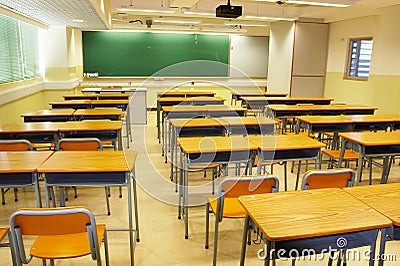This sign hung at the Gillette Stadium in Foxborough, Massachusetts this week during the annual MassCUE conference. "MassCUE" stands for the Massachusetts Computer Using Educators. The conference was also sponsored by the M.A.S.S. (that is, the Massachusetts Association of School Superintendents). The sign begs the question, Why is it that schools (education) is not changing if everything around the schools are changing? I think I know the answer...
The sign says that technology is changing. Few would need any strong justification to argue this point. Computer chips are constantly being made to be smaller and faster. (Although this scenario may come to an end soon.) Computers are smaller and more powerful. And the applications of this great processing speed appear to be endless. Finally, the sign suggests that students are changing. Different clothes, different music, and (once again) technology available at every turn. Of course, these "different" students are also living in this "different" world; so of course since they are living a different experience than their parents, it makes sense that students of today are different from students of 20 or 40 years ago.
So why are we surrounded by change and yet we are stuck with relatively little change in our schools? By "little change", I mean high school classes of about 30 students with one teacher doing most of the talking. Course requirements nearly the same for all students, even though we have students with different needs and different abilities. The school day has basically the same start and stop time as 50 years ago. The school year is basically the same as 50 years ago. (And not because of farming needs 100 years ago.) I would argue that the changes to the world, the workforce, technology, and students occurred as a sort of evolution. No one person or group of people orchestrated these changes. They happened as a natural phenomenon of humans living on earth and trying to better their situation. As a species, we are always looking for ways to improve our life and our surroundings. So we develop better tables and better chairs and better cars and better watches and so on. Each generation is a little better than the one before it for all of these things. But a change in schools requires that we conscientiously do something.
School change requires a community that wants the schools to change. Someone has to propose the change (or changes). Someone has to agree. Then someone has to convince the school board. And so on and so on. In the end, while educators may see the need for change in our schools (and not all educators see this change), non-educators often don't see the need for this change. The common expression is, "This is the way school was when I was a kid. It was good enough for me, so it will be good enough for you." The general public is weary of major changes. Change is disruptive and unsettling. It is uncomfortable. People (as a group) don't generally want things to change. They may accept changes that are forced upon them (such as a new cable company because the old one merged with the new one), but when given the choice it seems that most would vote against change. This is why (in my opinion) schools are so slow to change.
As an educator, it is frustrating because I sometimes wonder if we are preparing our students for anything more than higher-level coursework. Are they learning the skills they need to succeed in the workforce of the 21st century? Are they able to cope with the world that they will inherit? Is a high GPA enough? How do we help the public to embrace the sort of change that will benefit their children?
Can we allow our schools to change?



No comments:
Post a Comment